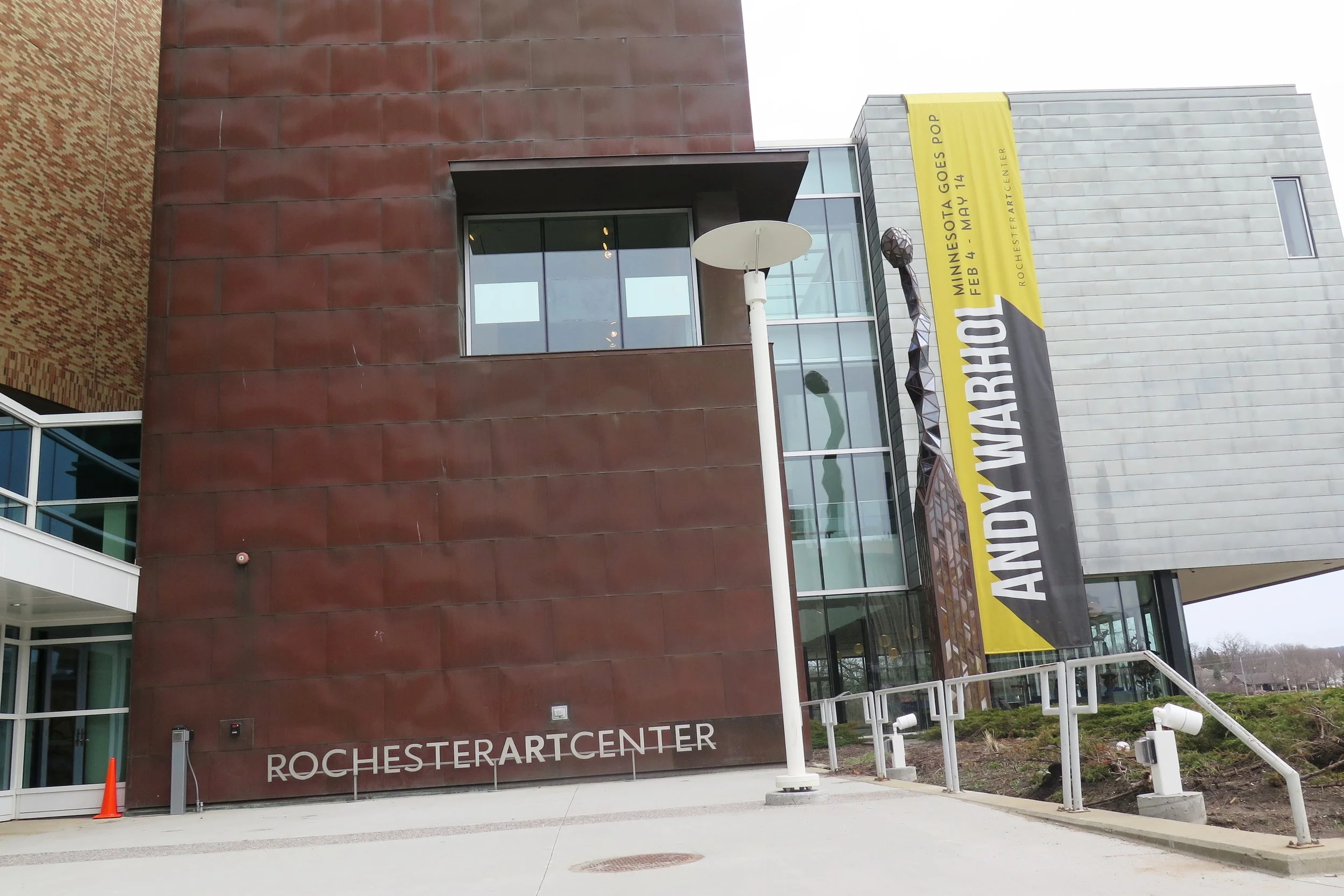Wojcik: Problems with oversight go far beyond the Art Center
I support the Rochester Art Center. I am committed to the mission of having a world class creative community in Rochester.
I do appreciate the digging done my MPR on issues at the Art Center. There are concerns there. While I am not currently on the board, I have been working with staff to try to help with a path forward. I believe that Lee Koch & Chad Allen are capable of addressing concerns, because I have been watching them do just that. There are no sacred cows, and fiscal sustainability will be achieved.
I believe the bulk, but not all of the Art Center's financial issues resulted from the precipitous fall in rental income, because frankly no one wants to have their special day in a construction zone. That said there have been challenges since the major expansion more than a decade ago. As a past board member probably my biggest frustration was learning about key pieces of information that I had not received in the past.
An issue that needed to be addressed within RAC is how information is provided to the board. I and other board / former board members first saw the 2015 audit in March of 2017. I believe that this communications issue has been addressed in recent months. The entire board needs to have access to timely and appropriate information. While reading the audit hurt, the reality is that the document reflected the already acknowledged financial issues. The audit was bleak, but the response has already been powerful.
These issues go far beyond the RAC, however. Much of this stems from a system of a handshake and a wink instead of rigorous, reviewed, and enforced contracts. The RAC is not the only city partner that has financial concerns. Additionally many "private" organizations suffer from a decided lack of public direction and oversight of tax dollars, transparency, and accountability.
While the focus today is the RAC, the policy recommendations should also apply to the GRACT, Rochester Civic Theatre, Senior Center, RCVB, RAEDI, RDA, etc. These rules should apply to any private partner we engage with or fund to fulfill a role.
The city will continue to partner with the arts because it is important for our community.
Here are the steps I recommend to address these issues:
Clear agreements written detailing the expectations, requirements, and commitments of all parties.
I took a continuing education course at the National League of Cities on the "Intersector Project." Here is an online tool kit. It is important that both the city and private group codifies in writing exactly what the city expects in terms of performance, transparency, board structure, reporting and results. Public - Private Partnerships (P3s) are great in theory, but only effective with a clearly defined agreement. The Intersector Project lays out a good series of recommendations.
Assign oversight responsibility to a city staff member.
We have competent staff members that can review materials and add comments prior to a council presentation, this is particularly important with some HR / staff issues where items need to be private for legal reasons. The presence of a council member probably is a misleading indicator of what our roles are. We are a conduit of information to the greater council, we are not technical experts on board actions, though as individuals, many of us have some of those skills. Our role is further complicated because while our work on public boards is rightfully public, our ability to disseminate information is more constrained on private boards. Going forward I believe it would be more appropriate to maintain relationships with private organizations using staff and contracts as opposed to council member representatives.
Revisit how the city supports partner organizations.
In general, our policy is to provide funds to cover the operations of city-owned buildings. This might not be the best approach. Many small organizations struggle with finance, HR, IT, etc. When you are a small organization, it is sometimes hard to hire the professional expertise for areas that are outside of your core mission. The city could perhaps achieve more and be more helpful by taking on some of the back office business functions and allowing our organizations to focus on their mission.
Set a default assumption of transparency.
All of the work of bodies acting on behalf of the city OR in city-owned buildings should be held to the standards of the Minnesota Data Practices Act. It is understood that there are reasonable exceptions like HR and prospective private financial deals could be exempted, but only with a pre-approved policy.
Longer-term planning.
This is something that the city also does not do well with and will be a topic addressed in 2017. One-year budgets don't work. It is too easy to push your problems into the next year. I have seen this on the city council for nearly a decade. We need a framework budget for 3-5 years showing changes in income and expenses. Three-five year operating budgets make organizations more realistically look at how they see there income and expenses change over time.
I remain committed to not only maintaining but strengthening the arts in Rochester.
Michael Wojcik represents Ward 2 on the Rochester City Council.
Cover photo: Med City Beat





